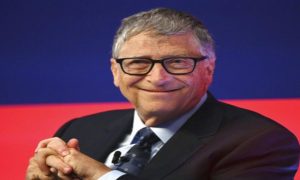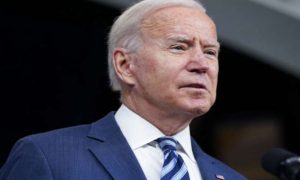It’s possible that a decision may come as early as Monday, when the Emergency Temporary Standard is set go into effect.
Business owners and HR managers who have 100 or more employees got a little closer to a resolution over the Occupational Safety and Health Administration’s (OSHA) Emergency Temporary Standard when both sides argued before the U.S. Supreme Court today.
The standard requires employers with 100 or more employees to either mandate vaccinations for all, or to require your unvaccinated employees to take weekly Covid tests and wear a mask unless they work alone or 100 percent outside, among other things. But the objections center around these two principles.
The Sixth Circuit Court lifted the stay on the standard on December 17, and if the court doesn’t reenact the stay by Monday, it will go into effect on Monday. They may give a quick response, but not entirely necessary from an employer’s point of view. OSHA said that as long as companies are operating in “good faith,” it will not begin enforcement until February 9, giving the court a bit more time to decide.
While the briefs tend to be a more substantial influence on the justices than the oral arguments, you can get some idea of what to expect from them. Here’s what you need to know:
The Possible Outcomes
OSHA attorney Phillip Russell, an equity shareholder at the employment law firm Ogletree Deacon, gave four possible outcomes, each with its own set of issues for business owners.
- SCOTUS enters an indefinite stay pending further action by either SCOTUS or the 6th Circuit;
- SCOTUS enters a brief stay for the Court to further consider the briefing and oral arguments before addressing an indefinite stay;
- SCOTUS denies the applications and allows enforcement to begin as OSHA wants on Monday, January 10; or
- SCOTUS denies the applications and allows enforcement to begin, but enters a brief stay giving employers time to comply
In other words, a quick decision may not be a final decision. There may be a lot more before a final decision happens.
Opinions Seemed to Form Along Ideological Lines
Read More : Should you outsource these tasks for your small business?
Covid has been political for a long time, and those political lines seemed evident in the hearings. As employment attorney and partner Jon Hyman at Herzer Wickers Panza says:
Based on the tone and tenor of the questions, there exists a clear, and not unsurprising, left/right divide on the court, which does not bode well for the ETS going into effect. I don’t see 5 votes against reinstating the stay.
For example, Justice John G. Roberts Jr. (appointed by George W. Bush) and Justice Neil M. Gorsuch (appointed by Donald Trump) both indicated that federal agencies were not the right place to solve the pandemic, while Justice Elena Kagen (appointed by Barack Obama) and Justice Stephen G. Breyer (appointed by Bill Clinton) indicated that the employees of the U.S. needed this mandate.
While it may be fun to guess which way the justices will rule based on what they say, it’s important to keep in mind that a statement made or a question asked in court may simply be a thought exercise, and not the justice’s true opinion. Regardless, there seemed to be a clear division along political lines.
What’s at Stake
While it may seem like this is a battle between pro-vaccination people and anti-vaccination people, that isn’t the case. A Court spokesperson said that all nine justices were vaccinated and had received booster shots. This is a case about federal power, versus state power, and who should be responsible for employee health.
U.S. Solicitor General Elizabeth Prelogar argued that even though Covid is a threat outside as well as inside the workplace, OSHA could still regulate that hazard.
Washington lawyer Scott A. Keller, representing the National Federation of Independent Business, argued the opposite, saying “[A] single federal agency tasked with occupational standards cannot commandeer businesses economy-wide into becoming de facto public health agencies.”
While this ruling will ultimately affect some 80 million employees, it doesn’t cover all employees and all businesses. Meaning, the U.S. could end up seeing vast differences in Covid rules for different organizations.
Hopefully the ruling will come quickly and be decisive, one way or the other, but it’s likely that businesses will still be in limbo for a while.























